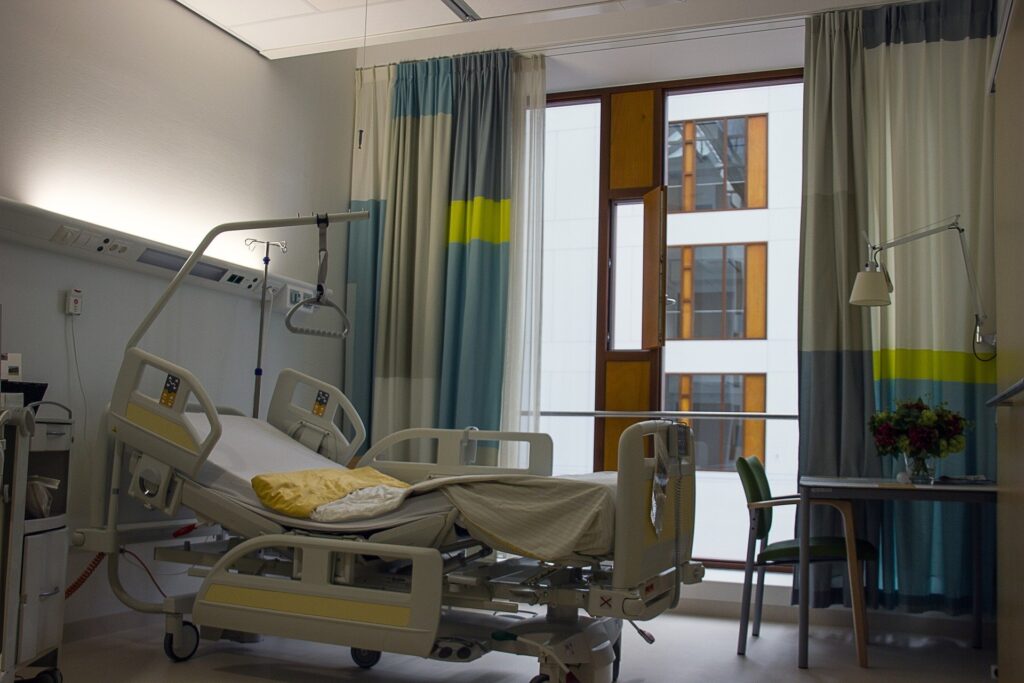
What I Learned from Being in the Hospital
I had been having chest pains or several days, but at first, I didn’t think anything about it. When you suffer from Prinzmetal’s angina, a little chest pain here and there is nothing to be terribly concerned about. Just take your medication and keep the arteries open, and there’s nothing to worry about.
But, when you start having chest pains while you’re walking across the floor, breaking out in a cold sweat, getting short of breath, and staying nauseous, it’s time to do something. I made an appointment with my primary care physician (yeah, I know—I should have gone to the emergency room—a friend who is a hospitalist kept texting me: “Go to the hospital!!!”). I saw Dr. Slayton’s PA, had an EKG, and had a cardiac exam. The EKG and the cardiac exam were good, but when she went and talked with Dr. Slayton, they both felt that with my symptoms, my situation was too serious not to visit the ER—the PA told me that my EKG could change on a dime and a heart attack was not out of the question. So, I got my first ride in an ambulance. Once I arrived at the hospital, I was promptly told that although I wasn’t currently having a heart attack, I was going to spend the night in the hospital. Well, I ended up spending two nights in the hospital. Yes, I was having a flare up of my Prinzmetal’s angina, and with an increase in my nitrate, I’m feeling so much better!
While spending a couple nights in the hospital, I learned some important lessons in the hospital, and I want to share some of those lessons with you today:
Disagreements can lead to wise decisions.
When I first arrived in the ER, I was seen by a physician almost immediately (when you arrive at the ER by ambulance for chest pain on exertion, your wait will be short!). The ER doc said not only that he was admitting me, but he was sending me upstairs for a heart cath first thing the next morning. When I saw the cardiologist, however, he felt it was wiser to start with a nuclear stress test (which is what we did). I greatly prefer the noninvasive procedure!
You see, those two physicians disagreed in their approach to my symptoms, but the disagreement did not prevent the right decision from being made. Too often we demonize those with whom we disagree, but maybe—just maybe—we can learn something if we listen, and we might realize our position is not the correct one.
Family is important.
When I learned I was being admitted, I texted Tammy, who was just leaving work and said, “Take care of the boys.” Yes, I wanted her and the boys at my side, but I knew they had other responsibilities. Tammy needed to feed the boys; since we couldn’t afford for them to eat out, that meant leaving me at the hospital and going home to have supper. Tammy had to work on Friday (and there was no sense in her waiting in my room while I had my stress test), and the boys needed to go to school. It was difficult spending most of my time in the hospital by myself, but my family—although they love me deeply—had other obligations. I had to be patient and encourage them to fulfill those obligations.
Preachers’ families come first.
My good friend, brother, and preacher, Tommy Blewett came by about 8:30 on Friday evening. That was an unusual experience, for I had never in my life had a preacher come to visit me in the hospital (elders and church members, yes, but I had always been the preacher). Tommy laughed when he came in and said that one of the reasons he was just getting there is that he had been with his family all day. He said, “If anyone would ever understand that, it would be you.”
He’s right; I fully understand, and I am so very, very thankful that Tommy spent time with his family instead of rushing to the hospital to see me. I’ve needed to balance being a preacher and being a husband and father. I don’t know that I did the balancing act very successfully, but preachers can never, never, never neglect their families, and I’m thankful Tommy doesn’t neglect his!
Scripture has great power to comfort.
Tommy did something with me that I had never done with anyone whom I visited—he went to the Psalms and read from Scripture to comfort and encourage me. You know what happened—I felt strengthened and encouraged (that’s the way Scripture works). I wish I had been wise enough to read Scripture with patients when I was preaching full-time. Lesson learned.
You can’t do everything by yourself.
On my second day in the hospital, I gave myself a bath. Bad idea! I became very short of breath, had a great deal of chest pain, and broke out in a cold sweat. After I got dressed and back in bed, I had to call for some nitroglycerin and I got to wear oxygen for a long time.
Sometimes we try to do everything for ourselves and the results aren’t quite what we had hoped. There’s nothing wrong in asking for help. There’s nothing wrong in realizing that you are not a superhero and that you need some help.
Yes, I feel so much better. In fact, I’m back to swimming a little bit every day; my PCP told me to take it easy on the swimming and I have been—I swam 500 yards this morning, but it took me 30 minutes. Slow and steady. But, after all, slow and steady wins the race.
God bless!





